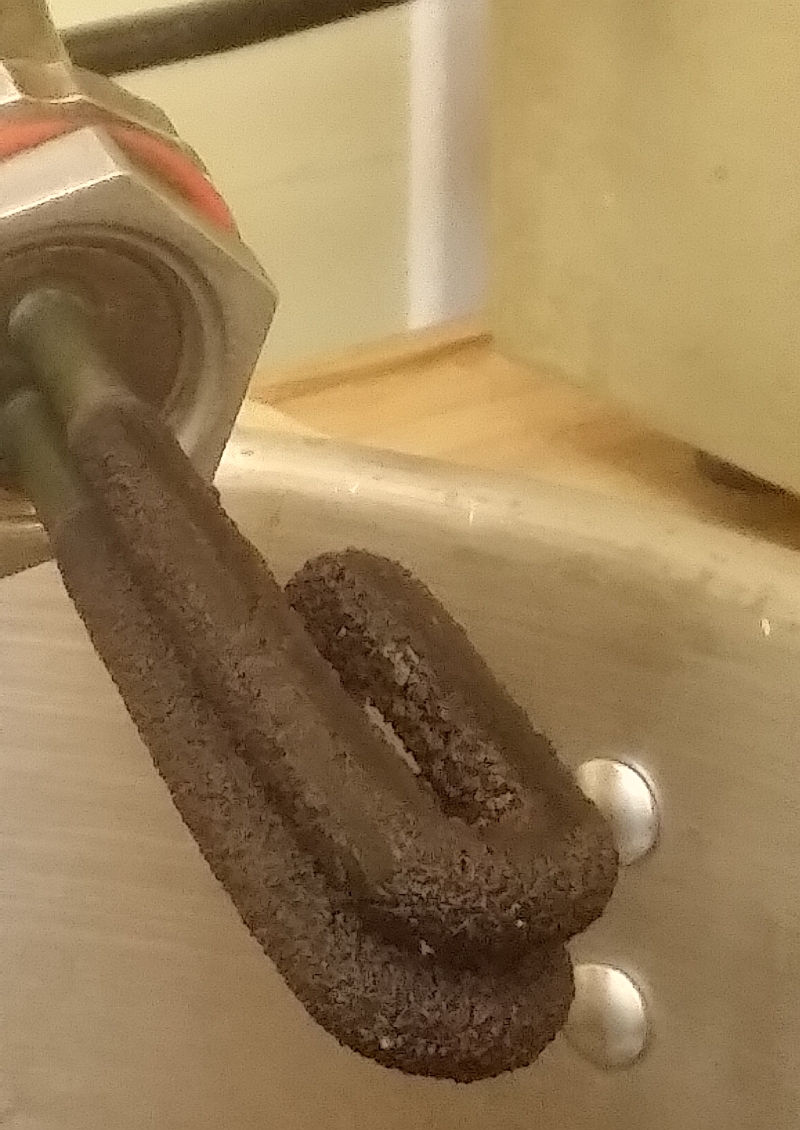While brewing a rye stout yesterday I noticed the aroma of burned toast during the boil. I recently built, and was using, one of those "heat sticks" found on other threads here on the forum. I use the "heat stick" to increase the vigor of my boil and have not noticed this aroma with other styles. The wort of this rye stout came out with a slightly scorched flavor and the electric element was coated with a hard, burned crust (see the attached pic).
Was just wondering if the rye was the culprit and why would rye burn like this and not other malts.
Any ideas?

Was just wondering if the rye was the culprit and why would rye burn like this and not other malts.
Any ideas?



